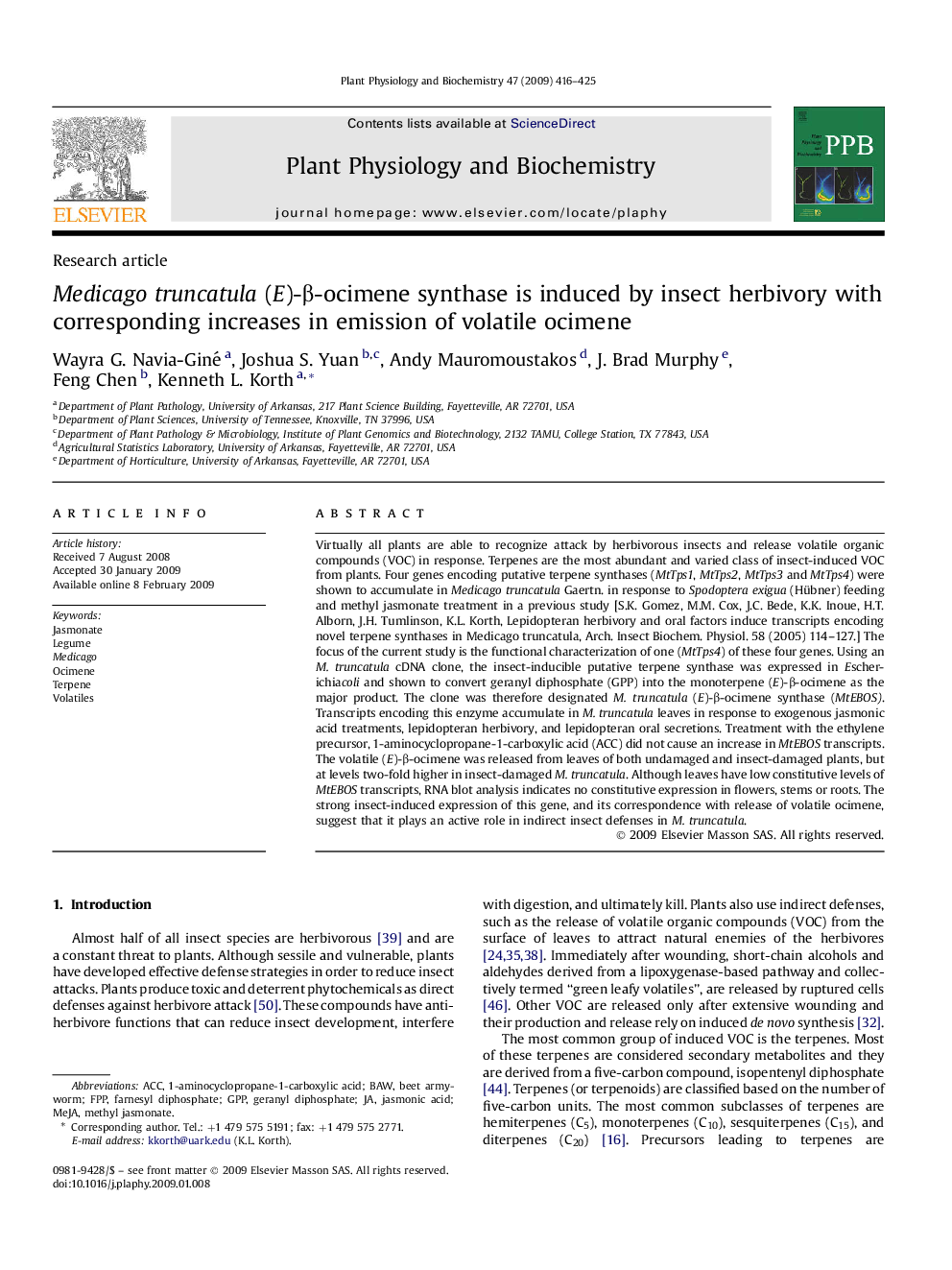| Article ID | Journal | Published Year | Pages | File Type |
|---|---|---|---|---|
| 2016779 | Plant Physiology and Biochemistry | 2009 | 10 Pages |
Virtually all plants are able to recognize attack by herbivorous insects and release volatile organic compounds (VOC) in response. Terpenes are the most abundant and varied class of insect-induced VOC from plants. Four genes encoding putative terpene synthases (MtTps1, MtTps2, MtTps3 and MtTps4) were shown to accumulate in Medicago truncatula Gaertn. in response to Spodoptera exigua (Hübner) feeding and methyl jasmonate treatment in a previous study [S.K. Gomez, M.M. Cox, J.C. Bede, K.K. Inoue, H.T. Alborn, J.H. Tumlinson, K.L. Korth, Lepidopteran herbivory and oral factors induce transcripts encoding novel terpene synthases in Medicago truncatula, Arch. Insect Biochem. Physiol. 58 (2005) 114–127.] The focus of the current study is the functional characterization of one (MtTps4) of these four genes. Using an M. truncatula cDNA clone, the insect-inducible putative terpene synthase was expressed in Escherichiacoli and shown to convert geranyl diphosphate (GPP) into the monoterpene (E)-β-ocimene as the major product. The clone was therefore designated M. truncatula (E)-β-ocimene synthase (MtEBOS). Transcripts encoding this enzyme accumulate in M. truncatula leaves in response to exogenous jasmonic acid treatments, lepidopteran herbivory, and lepidopteran oral secretions. Treatment with the ethylene precursor, 1-aminocyclopropane-1-carboxylic acid (ACC) did not cause an increase in MtEBOS transcripts. The volatile (E)-β-ocimene was released from leaves of both undamaged and insect-damaged plants, but at levels two-fold higher in insect-damaged M. truncatula. Although leaves have low constitutive levels of MtEBOS transcripts, RNA blot analysis indicates no constitutive expression in flowers, stems or roots. The strong insect-induced expression of this gene, and its correspondence with release of volatile ocimene, suggest that it plays an active role in indirect insect defenses in M. truncatula.
